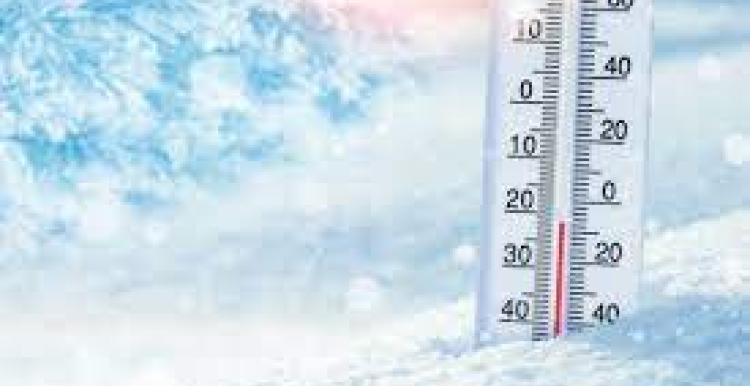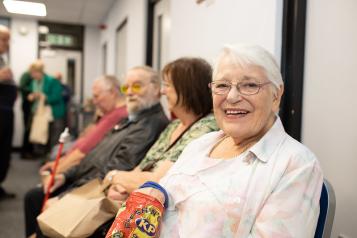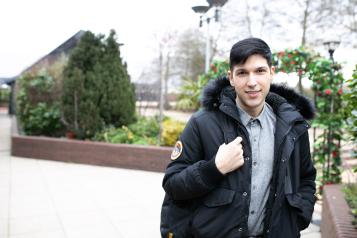Cold Weather Alert

The National Health Service (NHS) issued a health alert on Monday the 16th of January at 8:53 am.
There is a 90% probability of severe cold weather and icy conditions between 9am on Monday 16 January and 9am on Friday 20 January in parts of England.
This weather could increase the health risks to vulnerable patients and disrupt the delivery of services. Cold weather can make some health problems worse and even lead to serious complications, especially if you're 65 or older, or if you have a long-term health condition.
Who's most at risk from cold weather?
Some people are more vulnerable to the effects of cold weather. This includes:
- people aged 65 and older
- babies and children under the age of 5
- people on a low income (so cannot afford heating)
- people who have a long-term health condition
- people with a disability
- pregnant women
- people who have a mental health condition
Get advice if you feel unwell
If you're 65 or over, or in one of the other at-risk groups, it's important to get medical help as soon as you feel unwell.
You can get help and advice from:
- a pharmacy – pharmacists can give treatment advice for a range of minor illnesses and can tell you if you need to see a doctor
- your GP – you may be able to speak to a GP online or over the phone, or go in for an appointment if they think you need to
- NHS 111 – go to 111.nhs.uk or call 111 if you have an urgent medical problem and you are not sure what to do
The sooner you get advice, the sooner you're likely to get better.
In an emergency, go to A&E immediately or call 999.
Get your coronavirus (COVID-19) booster and flu vaccinations
If you're at greater risk from COVID-19 and flu it's important to get the extra protection of vaccination in winter.
You're eligible for free COVID-19 and flu vaccinations if:
- you're aged 50 or over
- you're pregnant
- you have a weakened immune system
- you have a long-term health condition that puts you at greater risk
For most people, flu is unpleasant, but for some it can be dangerous and even life-threatening. COVID-19 is also still making people very ill every day.
Both vaccines are safe and effective, and are the best protection from these viruses. It's important to get both vaccines if you're invited.
You need to have the flu vaccine every year because the viruses that cause flu change every year.
Your immunity from the COVID-19 vaccine also reduces over time. This is why those at greater risk are being invited to get a booster.
The best time to have the flu vaccine is in the autumn before flu starts spreading. But you can get the vaccine later.
If you're eligible it's important to get these vaccinations ahead of winter when viruses circulate most and can cause the most harm.
Find out more about the:
Information:
If you're 65 or over, you're also eligible for the pneumococcal vaccine, which will help protect you from pneumonia. Ask your GP surgery.
Keep warm and get help with heating
Keeping warm over the winter months can help to prevent colds, flu and more serious health problems such as heart attacks, strokes, pneumonia and depression.
Heat your home to a temperature that's comfortable for you. If you can, this should be at least 18°C in the rooms that you regularly use, such as your living room and bedroom. This is particularly important if you have a health condition. It's best to keep your bedroom windows closed at night.
Check your heating and cooking appliances are safe. Contact a Gas Safe registered engineer to make sure they're working properly. You can find an engineer from the Gas Safe Register website.
Make sure your home is fire safe. For fire safety advice specific to you and your home, visit the online home fire safety check website to complete a safety check for your home.
Make sure you're getting all the help that you're entitled to. There are grants, benefits and advice available to make your home more energy efficient, improve your heating or help with bills.
Find out more about ways to save energy in your home from GOV.UK, or call the government helpline on 0800 444 202.
You can also find out more from GOV.UK about benefits and financial support if you're on a low income.
Look in on vulnerable neighbours and relatives
Remember that other people, such as older neighbours, friends and family members, may need some extra help over the winter. There's a lot you can do to help people who need support.
Icy pavements and roads can be very slippery, and cold weather can stop people from going out.
Keep in touch with your friends, neighbours and family and ask if they need any practical help, or if they're feeling unwell.
Make sure they're stocked up with enough food supplies for a few days, in case they cannot go out.
If they do need to go out in the cold, encourage them to wear shoes with a good grip and a scarf around the mouth to protect them from cold air, and to reduce their risk of chest infections.
Make sure they get any prescription medicines before the holiday period starts and if bad weather is forecast.
If they need help over the holiday period when the GP surgery or pharmacy is closed or they're not sure what to do, go to 111.nhs.uk or call 111.
If you're worried about a relative or elderly neighbour, contact your local council or call the Age UK helpline on 0800 678 1602 (8am to 7pm every day). You can find your local council on GOV.UK.
If you're concerned the person may have hypothermia, go to 111.nhs.uk or call 111.

